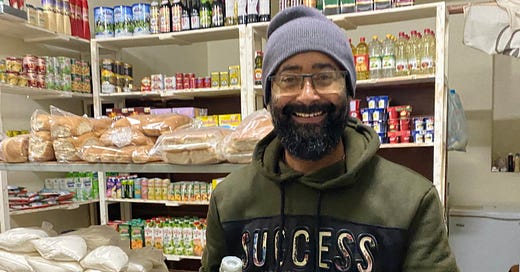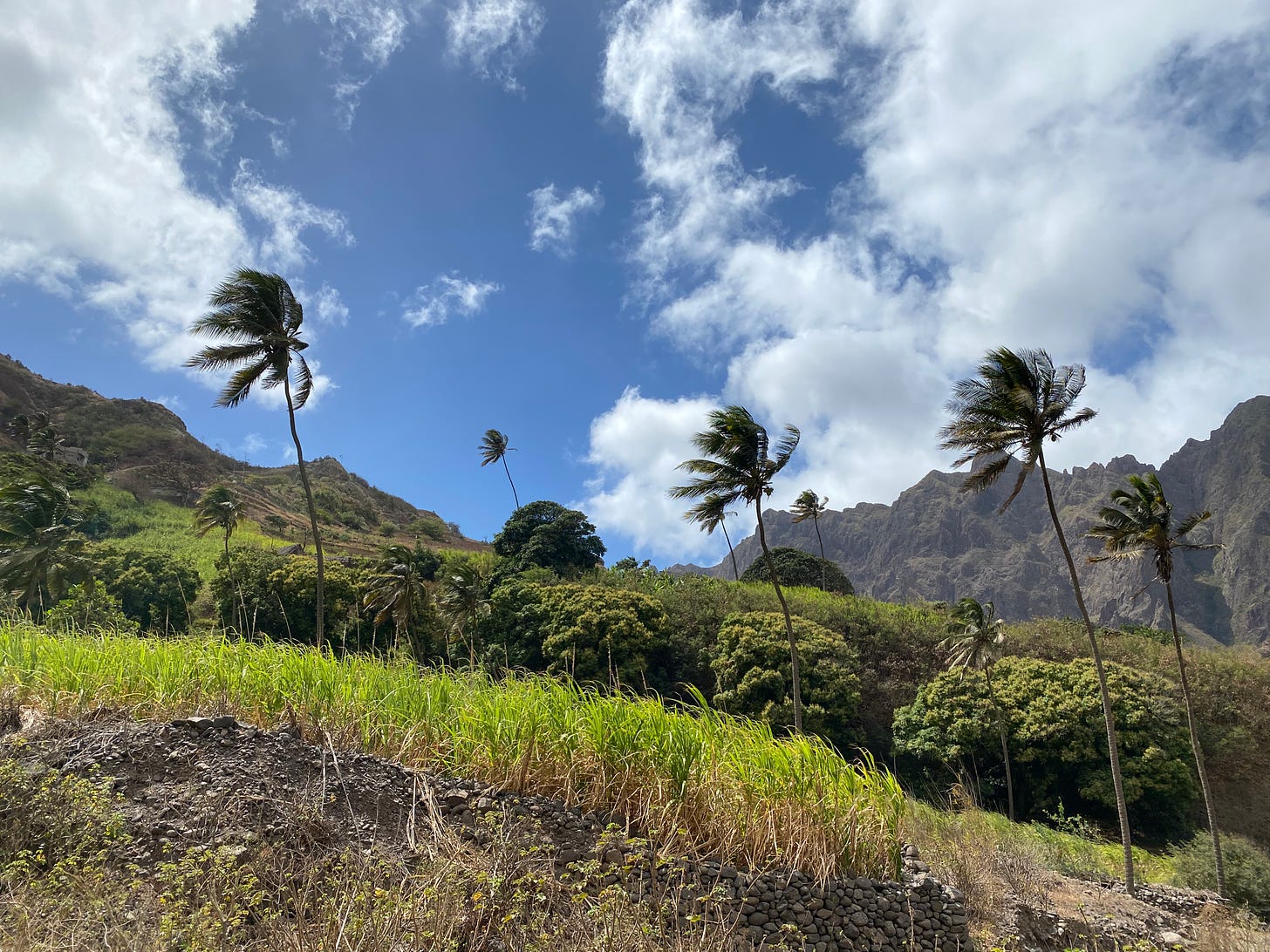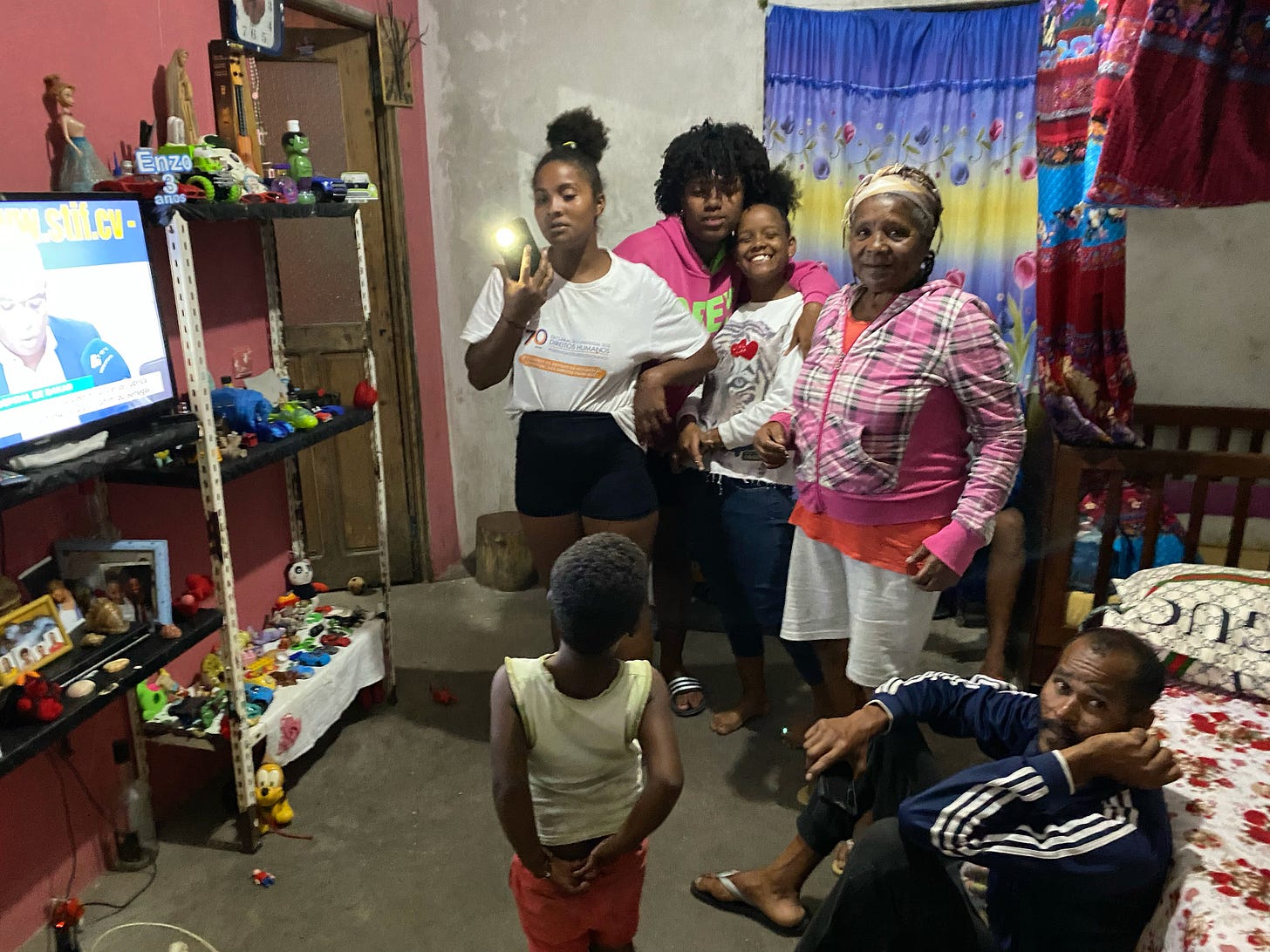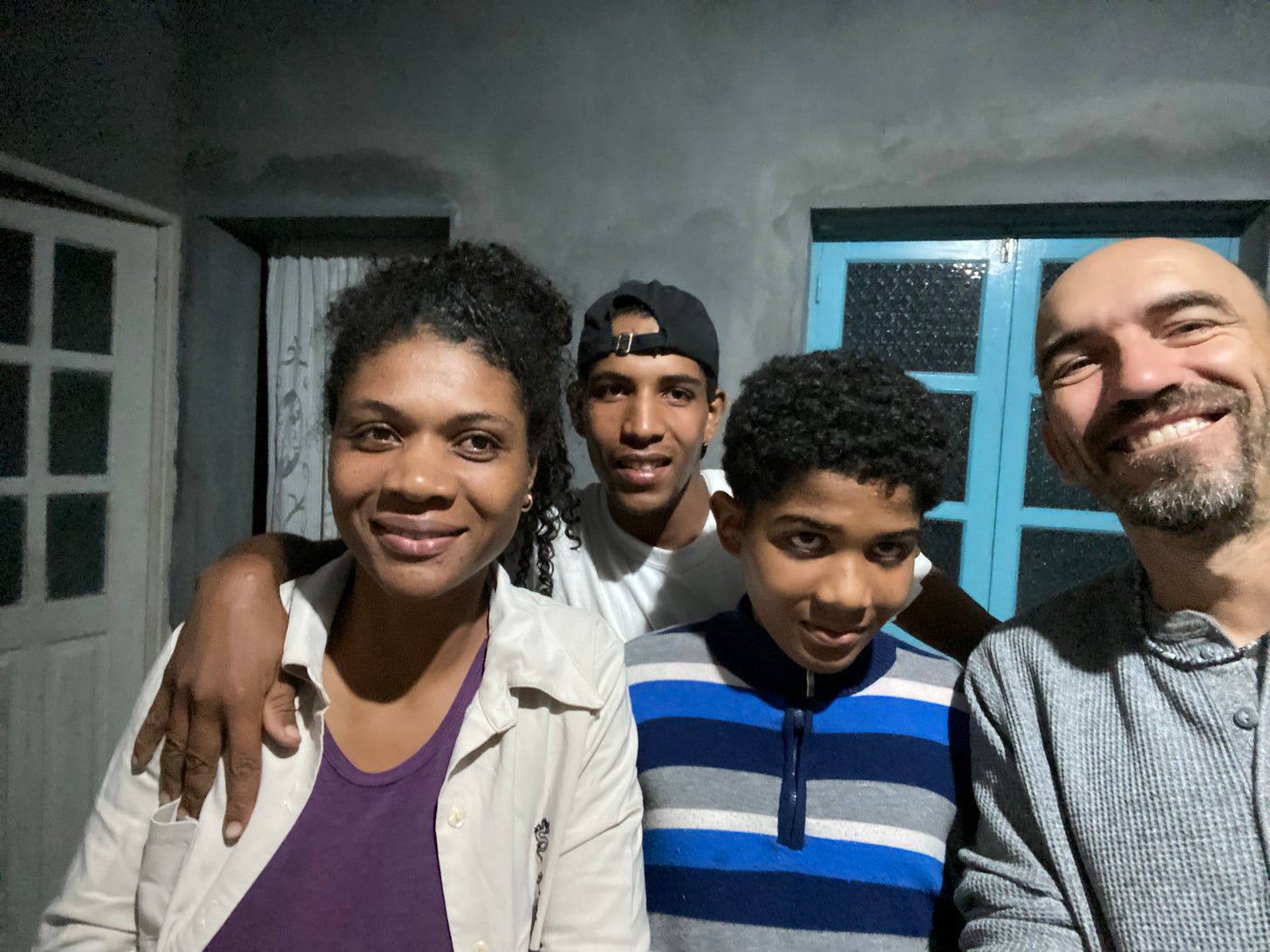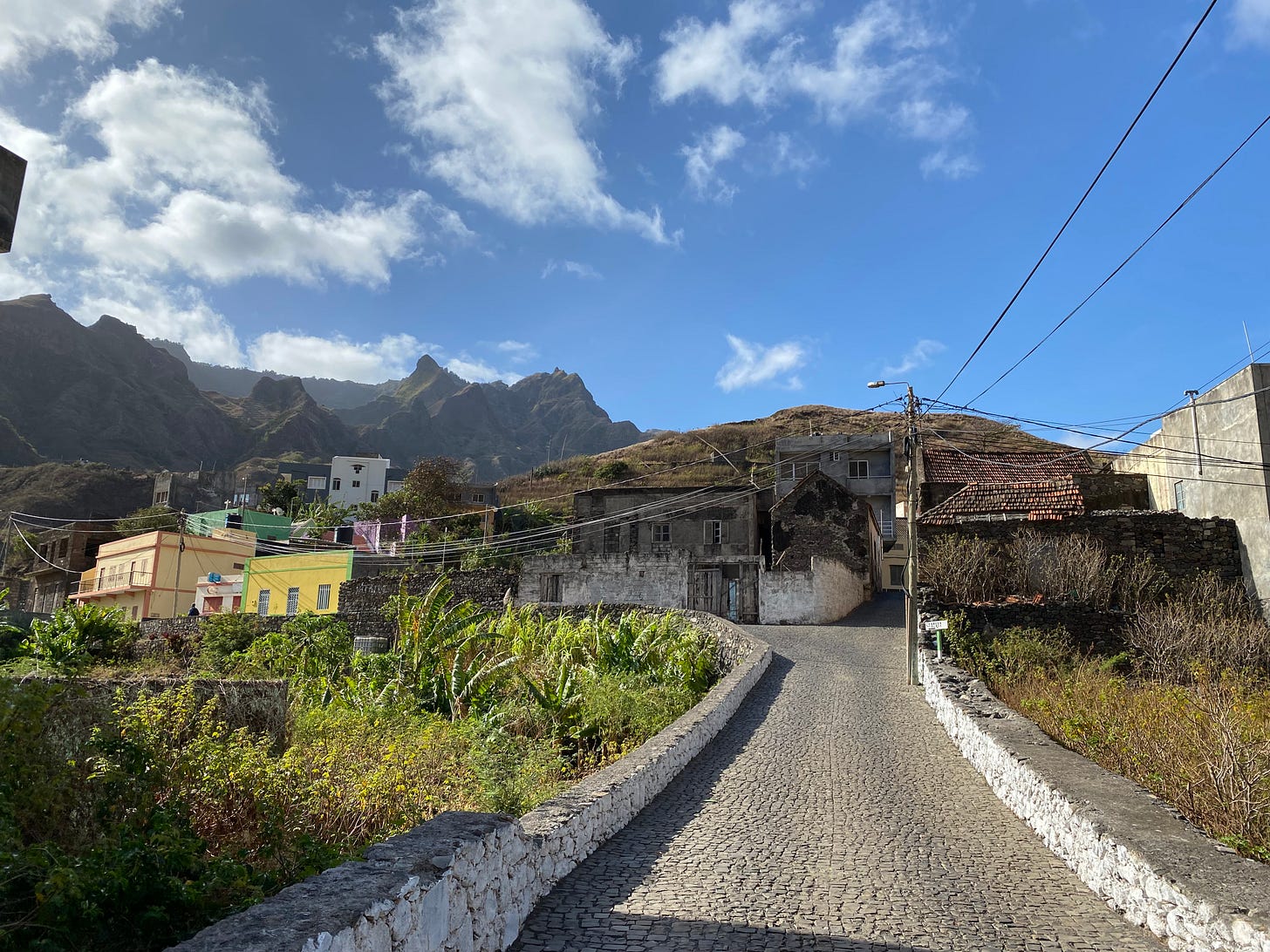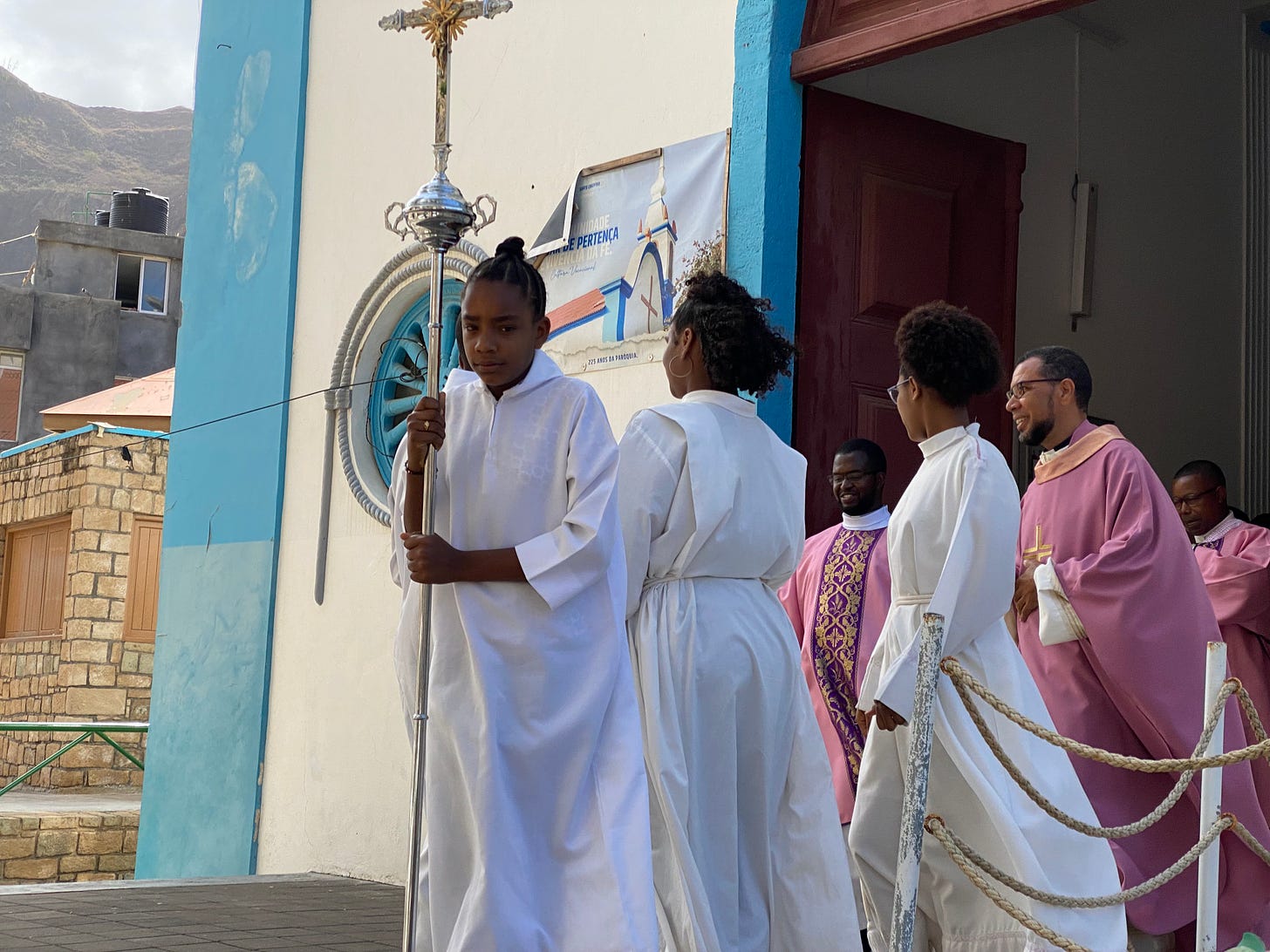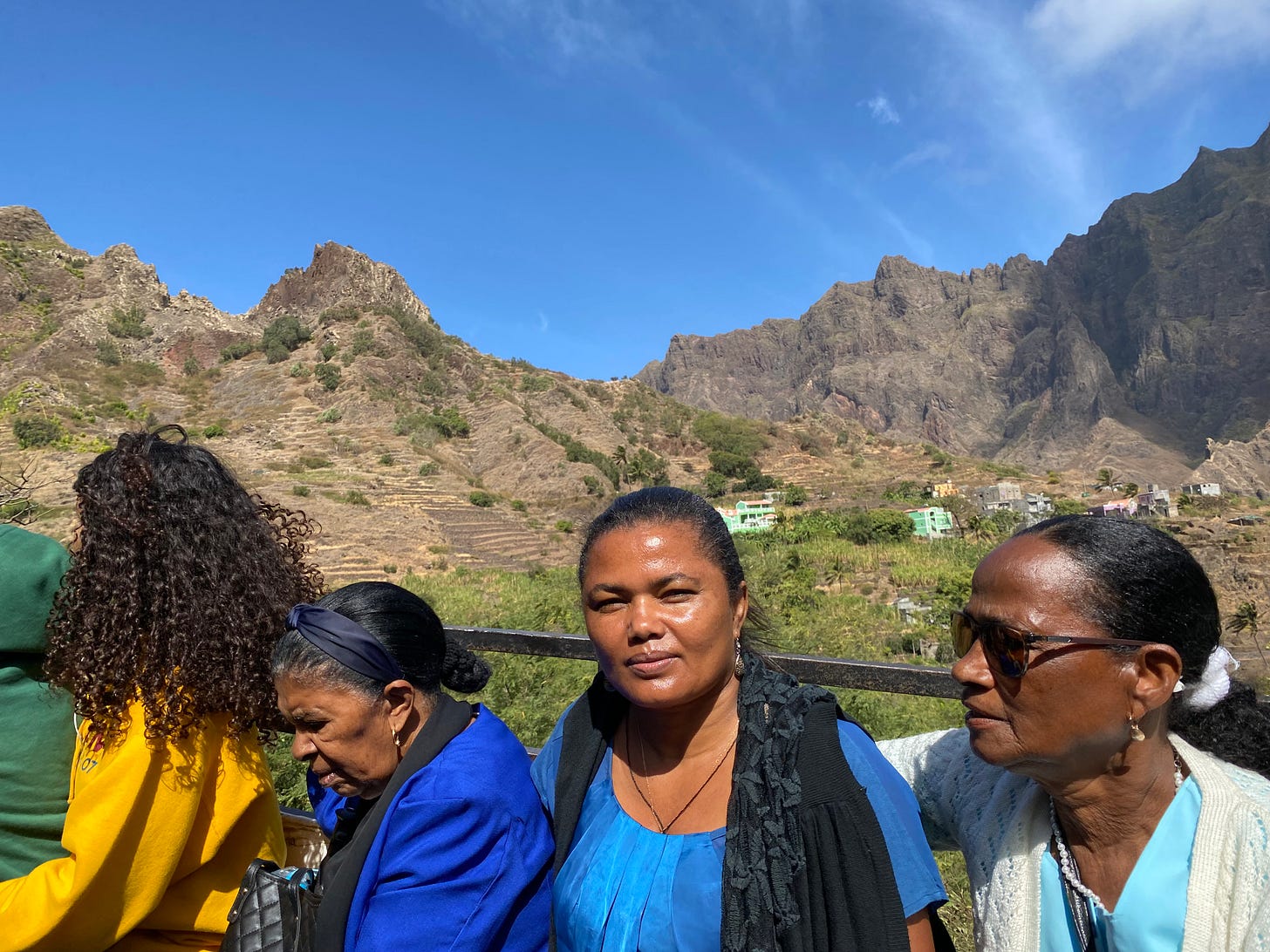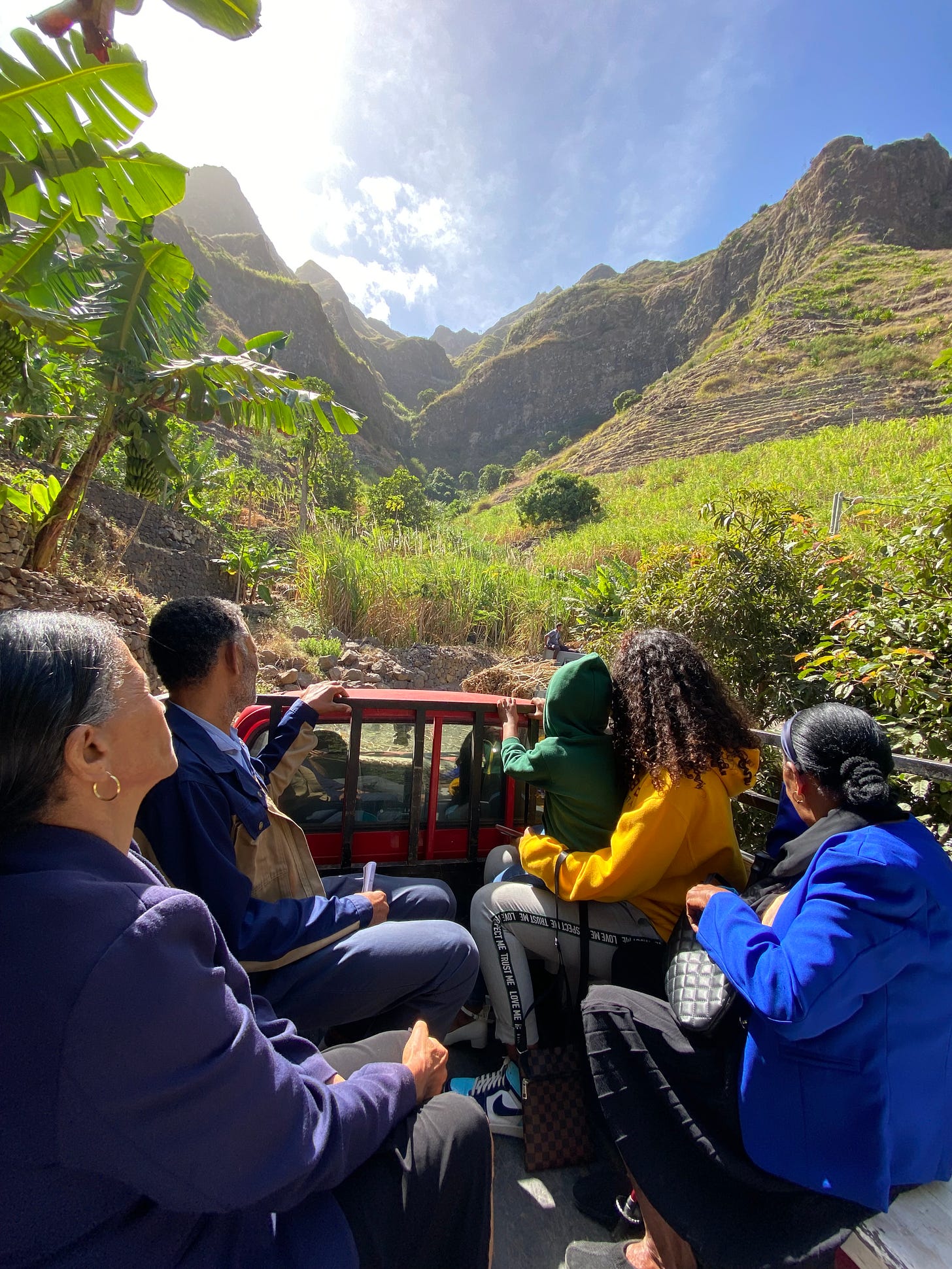I booked a random stay in a village not close to anywhere. The colectivo drops you near a bigger village Coculi, and then you need to walk quite a bit. But it is worth it.
The village is perched on the hill, like most villages here. It is no more than twenty houses.
The local shop is where neighbors spend their afternoons. The TV screen is in the window, so they can sit outside and watch football. I enter to ask for the way to Eneida’s house and receive warm welcome. Antonio, the shop owner is the best friend of everyone in the village.
I find that the house of Eneida is actually a hostel managed by the women association of the village. It is very pretty and clean and all money goes to the village. After dropping bags, I come back to the shop to make more friends. It goes fast. I get invited to tomorrow’s birthday of Rizilene.
There in Rizilene’s house, I meet family and neighbors. We drink groga, eat cachupa and discuss life and traveling. Eventhough Criule is a new language to me, it works somehow. My friends have not been abroad, but some have travelled to Mindelo or Praia (that’s another island, more than one day journey by boat unless you fly). They didn’t like it there. In the cities, they experienced aggression. I asked for more detail. It seems it was more of a general feeling of insecurity in the crowd of strangers. “A gente tranquilo em Santo Antão." Here people are quiet and relaxed, everyone reminds me.
The TV reports the ongoing war in Ukraine. In the most distant corner of Cabo Verde, the villagers watch this with great interest. They comment loudly: Putin is a mad man. To those sensitive and peaceful people, who rarely even yell at each other, the scale of horror driven by war is unimaginable.
I met a neighbor Israel, and the next evening we spend in his family house. The interior is very simple, and the people are very happy. There are many things to talk about, and we later remain in touch.
It is Sunday so I learn there is church service in Coculi, down in the valley.
Religious rituals are important part of local life, and so I try to participate, to the extent possible. After the mass there is a lot of laughing and talking, people stay on the square for a longer while and everyone wants to greet each other. The Sunday service integrates folk from distant villages who otherwise don’t meet often.
After church, I get a free lift home. A car just stopped and they told me to get in. People in the car knew who I am and where I live. Out of the sudden, I became a local.
The Cape Verdeans have African spirit, in the most positive sense. It is impossible to be lonely here. To the millions of depressed people in Europe, I would recommend a simple remedy: relocation.

